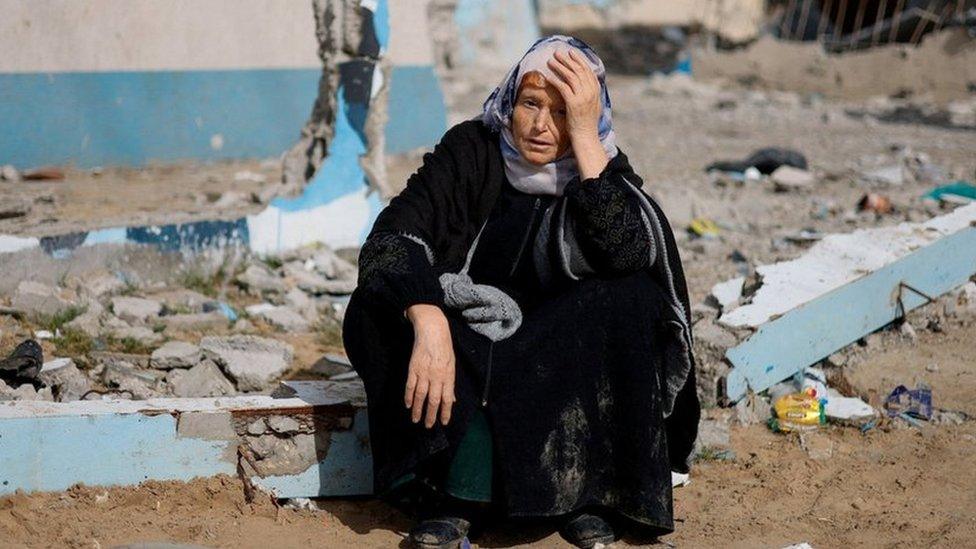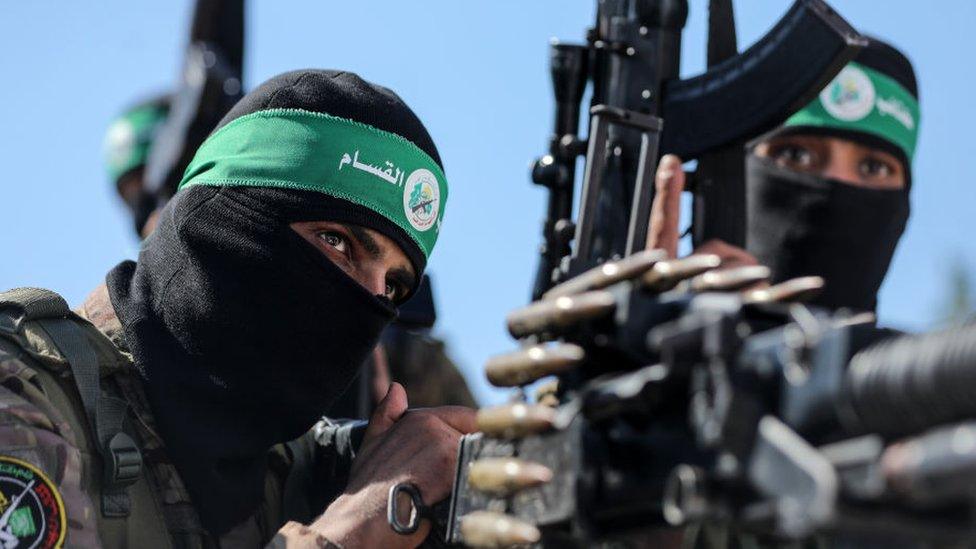Israel Gaza: China condemns US veto of call for immediate ceasefire at UN
- Published
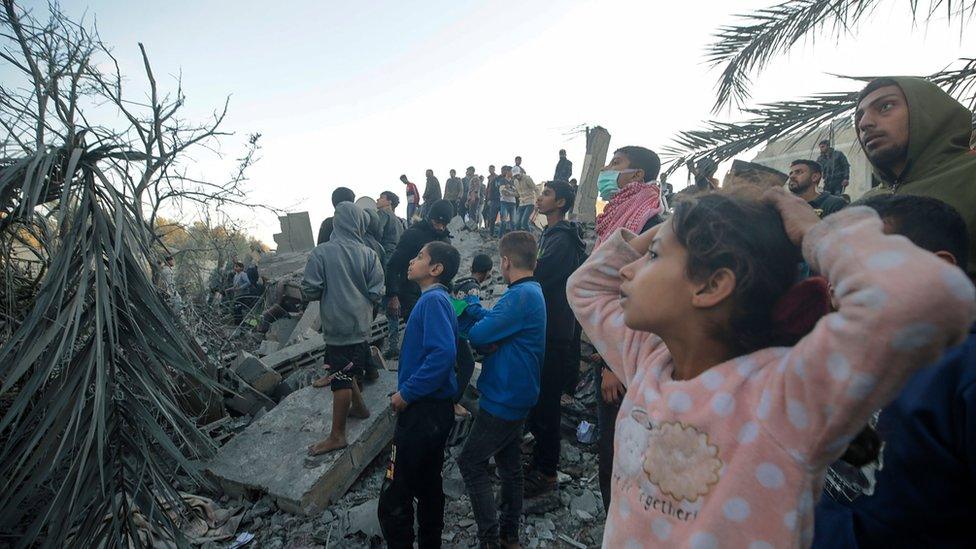
Palestinians watch as people search for bodies and survivors after Israeli air strikes in southern Gaza on Tuesday
China has sharply criticised the US for vetoing a United Nations (UN) Security Council resolution demanding an immediate ceasefire in Gaza.
Beijing said the move sent the "wrong message" and effectively gave a "green light to the continued slaughter".
The White House said the Algerian-proposed resolution would "jeopardise" talks to end the war.
The US has proposed its own temporary ceasefire resolution, which also warned Israel not to invade the city of Rafah.
Algeria's resolution was backed by 13 of the 15 members of the UN Security Council - with the UK abstaining.
Under the council's rules, any resolution that is vetoed by one of its five permanent members - which includes the US - is immediately thrown out.
Israel launched its operations in Gaza following an attack by Hamas on southern Israel on 7 October, during which about 1,200 people were killed and more than 240 others taken hostage.
The Israeli military campaign has left more than 29,000 people dead in Gaza, according to the Palestinian territory's Hamas-run health ministry.
More than a million displaced Palestinians - about half of the Strip's population - are crammed into Rafah after being forced to seek shelter there. The southern city, which borders Egypt, was home to only 250,000 people before the war.
Many of the displaced are living in makeshift shelters or tents in squalid conditions, with scarce access to safe drinking water or food.
Your device may not support this visualisation
The US decision to block Algeria's resolution has been met with widespread condemnation.
China's UN ambassador Zhang Jun said the claim that the motion would interfere with diplomatic negotiations was "totally untenable".
"Given the situation on the ground, the continued passive avoidance of an immediate ceasefire is nothing different from giving a green light to the continued slaughter," he said.
"The spillover of the conflict is destabilising the entire Middle East region, leading to rising risk of a wider war," he added.
"Only by extinguishing the flames of war in Gaza can we prevent the fires of hell from engulfing the entire region."
Algeria's top UN diplomat declared that "unfortunately the Security Council failed once again".
"Examine your conscience, how will history judge you," Amar Bendjama added.
Some US allies have also been critical of the decision to veto Algeria's proposed resolution. France's UN envoy Nicolas de Rivière expressed regret that the resolution had not been adopted "given the disastrous situation on the ground".
Linda Thomas-Greenfield, Washington's ambassador to the UN, said it was not the right time to call for an immediate ceasefire while negotiations between Hamas and Israel were continuing.
Her UK counterpart, Barbara Woodward, said the plan could "actually make a ceasefire less likely" by endangering talks.
The alternative resolution proposed by the US, meanwhile, calls for a temporary ceasefire "as soon as practicable" and on the condition that all hostages are released, as well as urging the lifting of barriers on aid reaching Gaza.
The White House previously avoided the word "ceasefire" during UN votes on the war. It is unclear if or when the Security Council will vote on the proposal.
The draft also states that a major ground offensive in Rafah would result in more harm to civilians and their further displacement, including potentially into neighbouring countries - a reference to Egypt.
Israel's Prime Minister Benjamin Netanyahu said on Tuesday he was "committed to continuing the war until we achieve all of its goals" and no pressure could change it.
The UN has warned that a planned Israeli offensive in the city could lead to a "slaughter". The Israeli military has previously insisted it only targets Hamas fighters.
Israeli war cabinet member Benny Gantz said the ground assault would be launched unless Hamas freed all hostages by 10 March.
The failure of Algeria's proposed resolution comes days after Qatar, one of the countries mediating talks aimed at brokering a pause to the fighting in Gaza, said they had not been "very promising" recently.
- Published1 November 2023
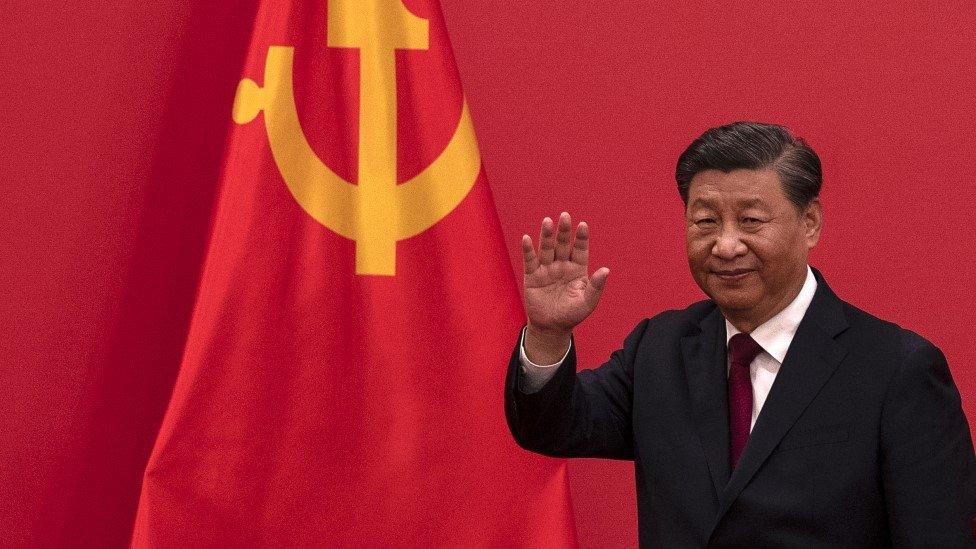
- Published20 February 2024
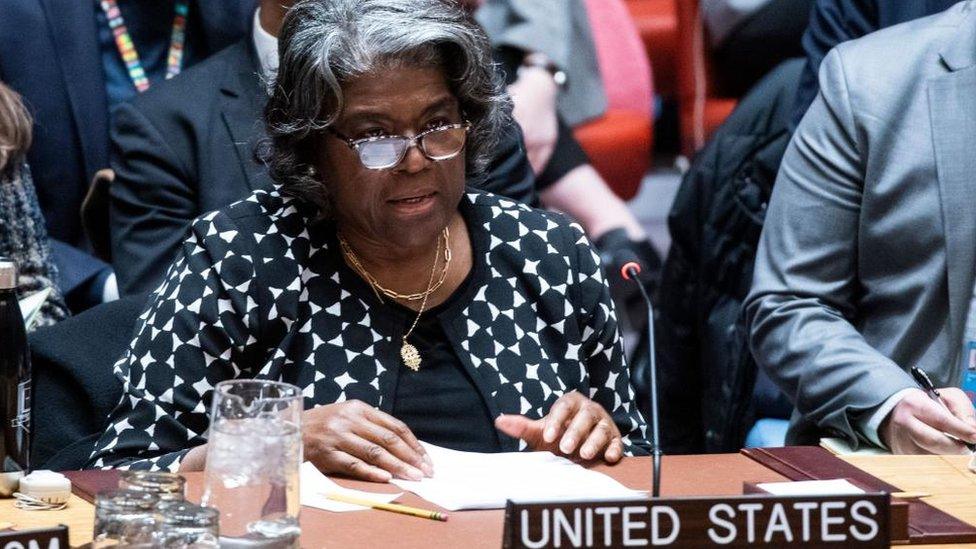
- Published19 February 2024
